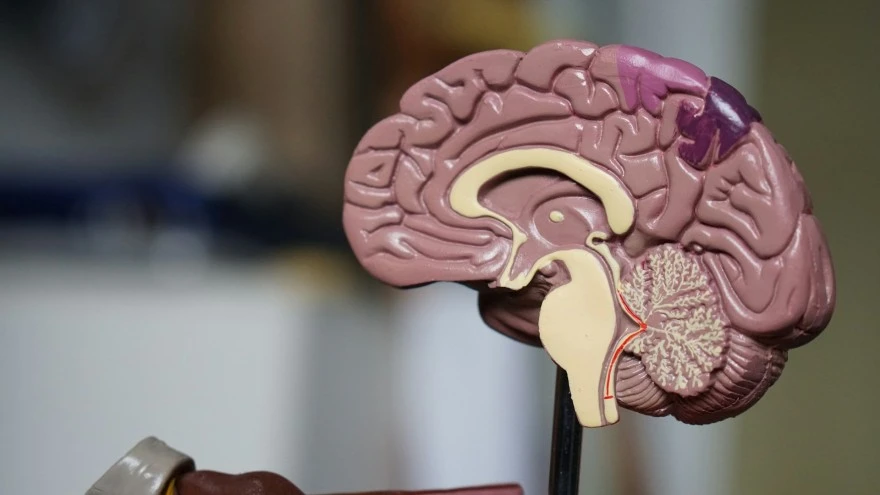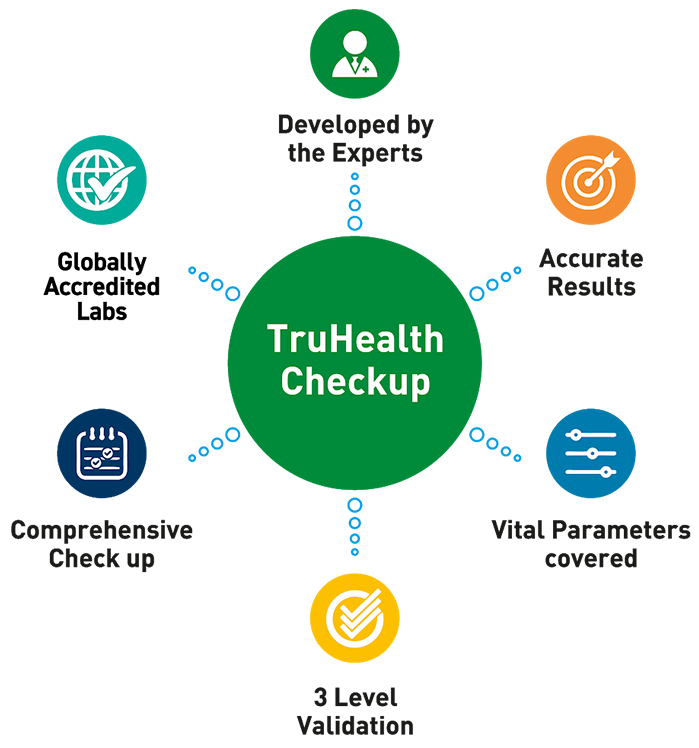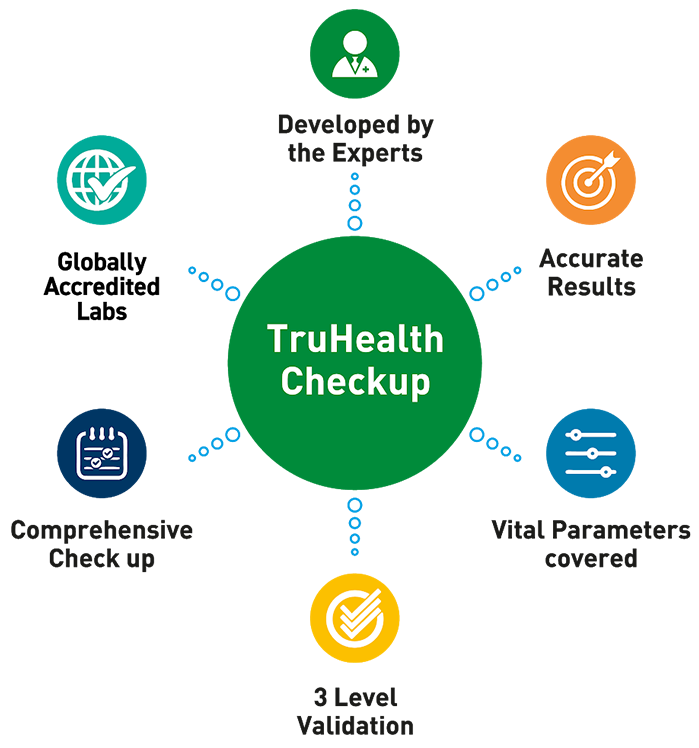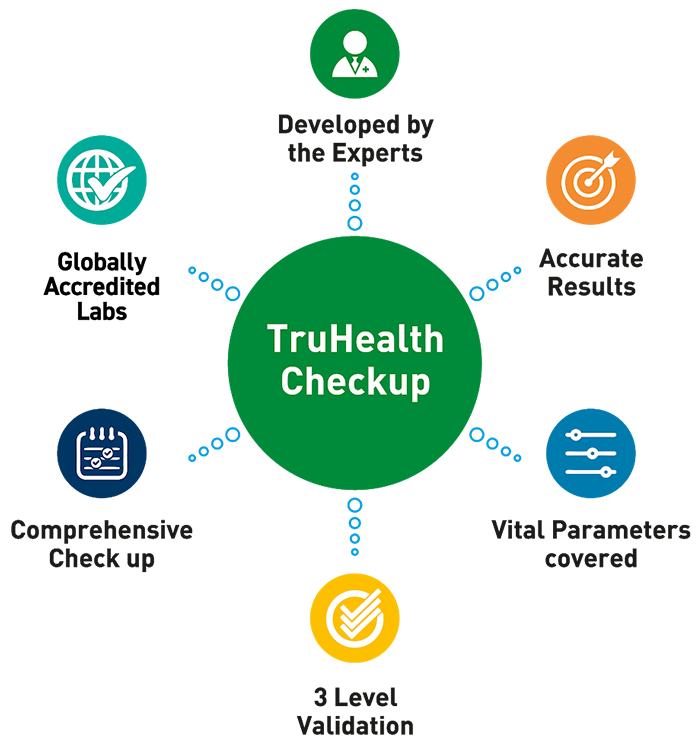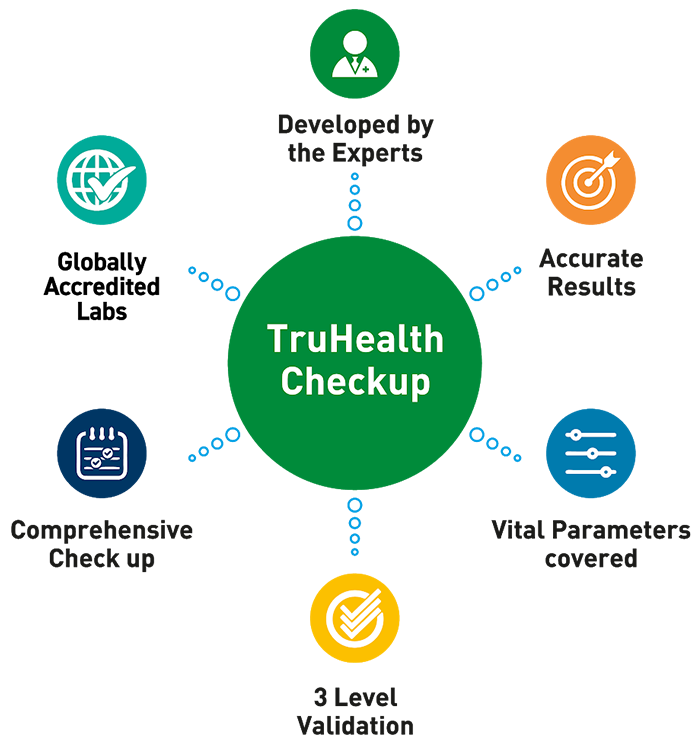Preventive Healthcare
Nausea: Treatment, Symptoms, Causes, And How to Deal With It

Table of Contents
- What is Nausea?
- Who is at a higher risk of experiencing nausea and vomiting?
- Symptoms of Nausea
- Causes of Nausea
- Is vomiting harmful?
- Nausea and Vomiting Treatments
- What are the possible complications of nausea and vomiting?
- How can you prevent nausea?
- What can you do to stop yourself from vomiting once you start feeling nauseous?
- When should nausea and vomiting be treated by a doctor?
- Conclusion
- FAQs
What is Nausea?
Nausea is not a disease but a symptom of some condition or underlying illness. It is something that most of us dread. That feeling of discomfort in your stomach, which sometimes can lead to vomiting, is something that no one likes.
We all have experienced that uneasy feeling at one time or another, mostly while reading a book in a moving vehicle or maybe after eating something that didn't agree with us. Although this condition is not serious, it can affect your quality of life. Therefore, read ahead to learn more about this and how to tackle it.
Who is at a higher risk of experiencing nausea and vomiting?
Certain individuals are more prone to experiencing nausea and vomiting. Those with a history of motion sickness, migraines, or postoperative nausea and vomiting (PONV) have an increased risk. Women, especially during pregnancy, are more likely to experience nausea compared to men. Non-smokers and people who undergo surgeries involving volatile anaesthetics or opioids also face a higher likelihood of PONV. In children, the risk of postoperative vomiting rises with age, particularly after infancy.
Symptoms of Nausea
When you are commonly experiencing nausea, you will have a queasy or sick feeling in your stomach and feel lightheaded. Here are the most common symptoms of nausea:
- Lightheaded
- Weakness
- Blurry vision
- Sweating
- A buildup of saliva in your mouth
- An urge to vomit
Some people also suffer from chronic nausea, and its symptoms are not easy to describe, but if you are suffering from chronic nausea, you may experience the following:
- Always feeling like you're about to vomit.
- Loss of appetite
- Retching (repeated rhythmic contractions of respiratory and abdominal muscles that happen without your control).
- Abdominal pain.
- Tummy ache.
- Profuse sweating.
- An uneasy feeling in your chest, upper abdomen, or throat.
- Vomiting.
Causes of Nausea
There can be many causes of nausea, but the most common causes that are seen in almost every person suffering from nausea are:
- A Virus or Infection: If you are suffering from a viral flu stomach infection, the most common symptom will be nausea.
- Motion or Sea Sickness: Many people feel nauseated while travelling in a vehicle and sailing through the sea.
- Early Pregnancy: Morning sickness is one of the most common pregnancy symptoms.
- Strong and Peculiar Smells: Many people are quite sensitive to strong and peculiar smells as they can lead to a migraine and, in turn, can cause nausea.
- Heartburn or Gastroesophageal Reflux Disease (GERD): This disease will likely cause your stomach’s contents to move back up your oesophagus when you eat. This, in turn, creates a burning sensation that causes nausea.
- Medications: Certain medications — for example, cancer treatments like chemotherapy — can upset the stomach or contribute to nausea. Be sure to carefully read the medication information for any new treatments you may be taking.
- Your Diet: Food intake is directly related to nausea. Habits such as eating cold and hot together, overheating food, having an oily and spicy diet, or eating something you are allergic to will cause nausea.
Many other causes can be due to an underlying illness, such as an ulcer or sore in the stomach lining, ear infection, migraine, meningitis, liver cancer or failure, intestinal blockage, heart attack tack and benign paroxysmal positional vertigo (BPPV).
Is vomiting harmful?
While vomiting itself is not usually harmful, it can lead to dehydration if not managed properly. Losing excessive fluids and electrolytes through vomiting can cause imbalances in the body. Persistent or severe vomiting may require medical intervention to prevent complications. It's essential to replace lost fluids by sipping on clear liquids like water, broth, or oral rehydration solutions.
Nausea and Vomiting Treatments
Nausea is not something that can not be treated. Luckily there are many common practices you can incorporate in your life that will help you fight this issue. They are:
- Proper Rest: Sleeping for at least 8 and taking rest intervals during the day is very important, as being too active will worsen your nausea.
- Stay Hydrated: Dehydration is the worst symptom of nausea. Keep yourself hydrated by drinking cold, clear, carbonated, or sour beverages, such as ginger ale, lemonade, and water, don't gulp it down as that will increase your nausea. Try taking small sips.
- Eat Bland Foods: If you feel nauseated, eat something easy to digest instead of spicy or oily.
- Don't Apply Strong Perfume and Steer Clear of Strong Odours: Strong perfumes, smoke, and food cooking smells can trigger your nausea, therefore try and avoid them.
- Avoid Motion Sickness: Sitting in the front seat of a car opening the window, trying to listen to some peaceful music, and not watching movements outside the window will make your nausea worse. Over-the-counter medicines are also available for motion sickness.
- Eat Small Frequent Meals: Instead of eating just once or twice throughout the day, try eating small meals at frequent intervals as they are easier to digest and will not trigger nausea.
Avoid other nausea triggers like stuffy rooms, heat, humidity, flickering lights, and driving. After doing all this, if you are still not feeling better and it's been more than three days, then you should contact your doctor and do it more urgently if your nausea is also associated with a recent head injury, severe headaches or migraine, blood in vomiting, extreme weakness, high fever, blurred vision, and confusion or stiff neck.
What are the possible complications of nausea and vomiting?
Nausea complication risks can become serious if not addressed promptly. Dehydration is the most common issue, leading to dizziness, weakness, and potential kidney damage due to fluid and electrolyte loss. Another nausea complication is malnutrition, especially if the person is unable to eat properly over time.
Persistent vomiting can also trigger acid reflux, harming the oesophagus and teeth. In extreme cases, forceful vomiting may even cause oesophageal tears. Pregnant women with severe symptoms, such as in hyperemesis gravidarum, may need medical care to protect both maternal and foetal health. Early treatment is key to preventing these outcomes.
How can you prevent nausea?
Nausea prevention requires a mix of lifestyle strategies and, when necessary, medications. For motion sickness, taking antihistamines before travel can be effective. In cases like postoperative nausea, doctors may prescribe antiemetics or avoid certain anaesthetics to reduce risk.
Key nausea prevention techniques also include staying well-hydrated, eating small and frequent meals, and avoiding spicy or greasy foods and strong odours. Stress-reducing practices like deep breathing, meditation, or the use of acupressure wristbands may help manage symptoms. Pregnant women can try ginger-based remedies or vitamin B6 supplements with medical advice. If nausea becomes frequent or severe, it’s important to consult a healthcare provider to uncover the root cause and determine suitable long-term solutions for effective prevention.
What can you do to stop yourself from vomiting once you start feeling nauseous?
When you start feeling nauseous, there are several steps you can take to alleviate the sensation and prevent nausea and vomiting:
- Breathe deeply and slowly to calm your body's response.
- Sip on cold, clear fluids like water, lemon juice, or ginger ale.
- Avoid solid foods temporarily and opt for easily digestible options like crackers or toast.
- Try sucking on ice chips or popsicles to stay hydrated.
- Rest in a cool, quiet environment and minimise movement.
Ginger has natural anti-nausea properties, so consuming ginger tea, capsules, or lozenges may help. Over-the-counter nausea medications like antihistamines or bismuth subsalicylate can also provide relief. However, if symptoms persist or worsen, it's essential to seek medical advice.
When should nausea and vomiting be treated by a doctor?
While occasional nausea and vomiting can often be managed with rest, hydration, and dietary adjustments, there are times when medical attention is essential. If nausea and vomiting persist for more than a couple of days, worsen in severity, or are accompanied by troubling symptoms, it’s important to consult a doctor. Vomiting blood or material resembling coffee grounds may signal internal bleeding and requires urgent care. Signs of severe dehydration—such as dry mouth, dark urine, dizziness, rapid heartbeat, or confusion—also demand prompt treatment.
Pregnant women who experience intense nausea and vomiting, especially with weight loss or inability to retain fluids, could be facing hyperemesis gravidarum and should seek medical advice. Similarly, children and elderly individuals are more prone to dehydration and may need evaluation sooner if symptoms persist. Additional red flags include high fever, severe abdominal pain, stiff neck, headache, or altered mental status. These may indicate infections or other serious health conditions.
Nausea and vomiting can sometimes be symptoms of more complex medical issues. When in doubt, it’s better to be cautious and speak to a healthcare provider to ensure timely diagnosis and appropriate treatment, especially when the symptoms disrupt daily functioning.
Conclusion
Nausea is a terrible gut feeling that can make you avoid eating and drinking properly. The feeling of discomfort in your stomach, which sometimes can lead to vomiting, is something that no one likes. Anyone can experience this uncomfortable feeling.
Although this condition is not serious, it can affect your quality of life. The above-mentioned natural tips can help soothe this uneasiness without external medications. However, if the condition persists, you should seek medical advice from your healthcare practitioner.
At Metropolis Healthcare, you can find the perfect solution for your problem with experienced pathologists. They are a leading pathology lab and diagnostic centre with a multinational network, a comprehensive range of 4000+ clinical laboratory tests and profiles, and senior pathologists to deliver diagnostic solutions. They offer the convenience of a stay-at-home blood collection service, online tracking of samples, and report download from a single app. They are widely recognized by several brands and institutions and offer a comprehensive Corporate Social Responsibility program.
FAQs
How can I get rid of nausea?
Some effective ways to alleviate nausea include:
- Consuming ginger in the form of tea, capsules, or lozenges
- Staying hydrated with clear fluids
- Getting plenty of rest in a cool, quiet environment
- Using over-the-counter nausea medications like antihistamines or bismuth subsalicylate
What if I have constant nausea?
Constant nausea can be a sign of an underlying medical condition and should be evaluated by a healthcare provider. They can help identify the cause and recommend appropriate treatment options.
Does my nausea mean I am pregnant or sick?
Nausea can be a symptom of pregnancy or various illnesses, but it doesn't always indicate a specific condition. Other factors like motion sickness, medication side effects, or digestive issues can also cause nausea and vomiting. If you suspect pregnancy or have concerns about your symptoms, consult a healthcare provider for an accurate diagnosis.
Why do I feel like throwing up but I don't?
Feeling like throwing up without actually vomiting can be unsettling and is often caused by factors such as stress, anxiety, motion sickness, hormonal changes, or sensitivity to certain smells and tastes. This sensation is commonly described as nausea.
Understanding the difference between nauseous vs. nauseated can also help clarify what you’re experiencing—'nauseous' traditionally means something that causes nausea, while 'nauseated' describes the feeling itself, though the terms are often used interchangeably today.
What is the best medicine for nausea?
The most effective nausea medication depends on the underlying cause. Common over-the-counter options include:
- Antihistamines like dimenhydrinate or meclizine
- Bismuth subsalicylate (Pepto-Bismol)
- Ginger supplements
In severe cases, prescription medications like ondansetron or promethazine may be necessary. Always consult a healthcare provider before starting any new medication to ensure it's safe and appropriate for your specific condition.








